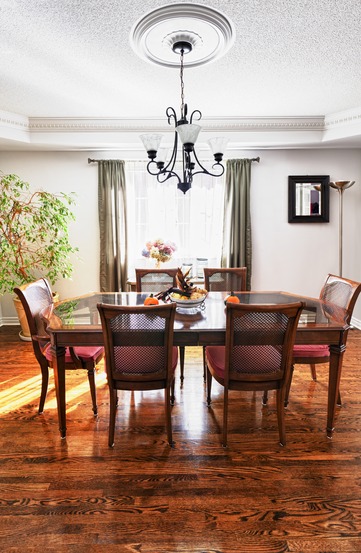If you have hardwood flooring in your home, you already know how much elegance and beauty it adds to your home. You also know that at some point, your hardwood flooring is either going to need refinished or replaced. No matter how careful you are, no matter how well you take care of your floor, time and regular wear and tear is eventually going to need to be fixed.
So, how do you know how often you should replace your hardwood flooring? After all, replacing hardwood flooring can be a hefty expense, so you do not want to tackle this project except when necessary. Here are some tips to help you determine when to replace your hardwood flooring.
- If your subfloor shows signs of structural damage, you need to replace the subfloor and the flooring. The hardwood flooring likely has shifted or even warped from the damage to the subfloor. You cannot cover up significant subfloor damage, so replacement is your only feasible option.
- If you have just discovered hardwood floors underneath another type of flooring, it may be damaged beyond repair. In particular, adhesives can be quite troubling to remove from hardwood floors. In many cases, it is more cost effecting and time saving to simply replace the flooring.
- If your hardwood floors have already been refinished multiple times, it may be time to replace the flooring. Hardwood flooring can typically tolerate refinishing about 5 times, so if you have maxed out your floor’s endurance, it is time to replace it.
- Finally, if your hardwood flooring has experienced significant moisture damage, you need to replace it. Moisture is one of the most damaging factors for hardwood floors – it leads to warping, buckling, cracking, and peeling. If your floors are moisture damaged, start making plans to replace the flooring.

For all of your Denver Hardwood Flooring needs visit our site today.